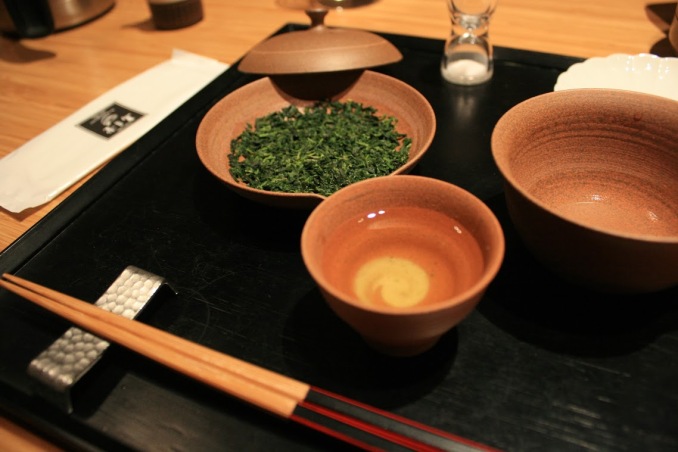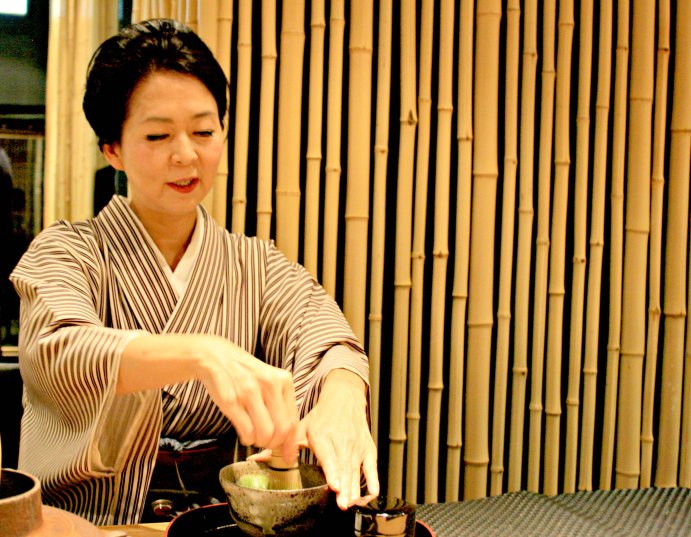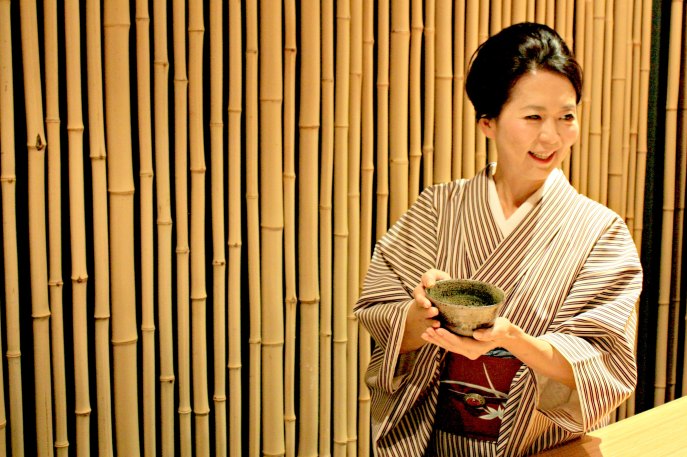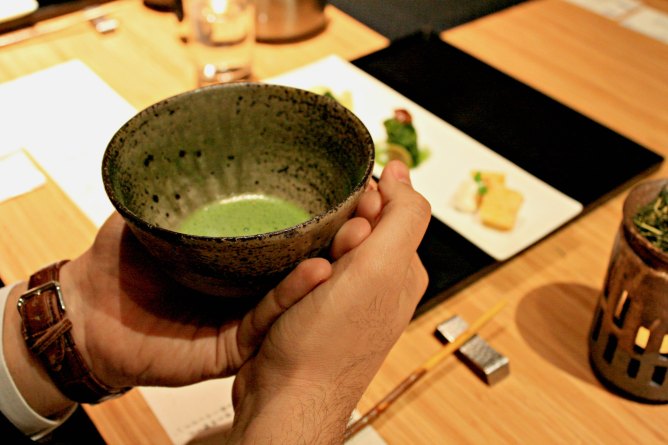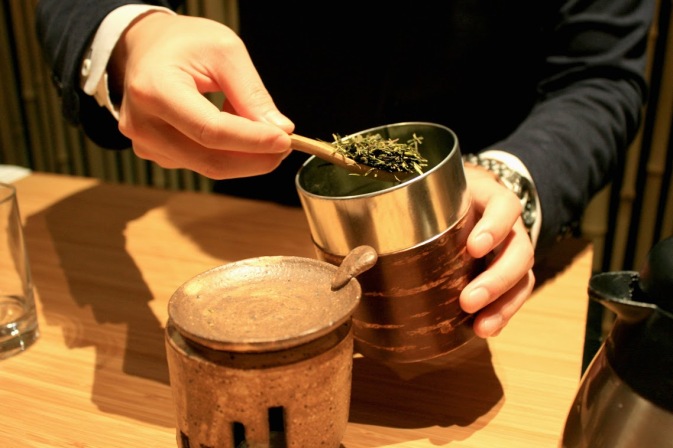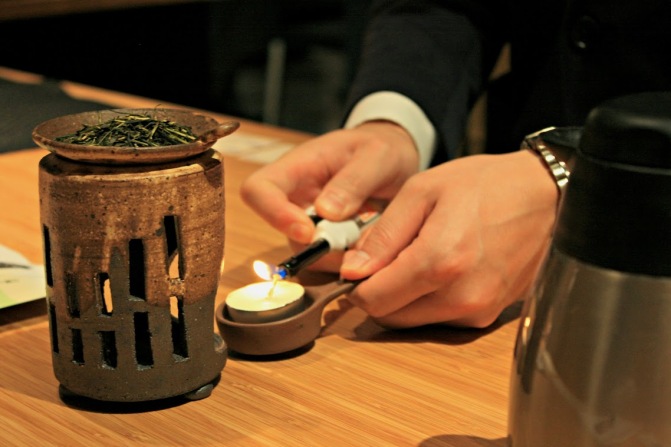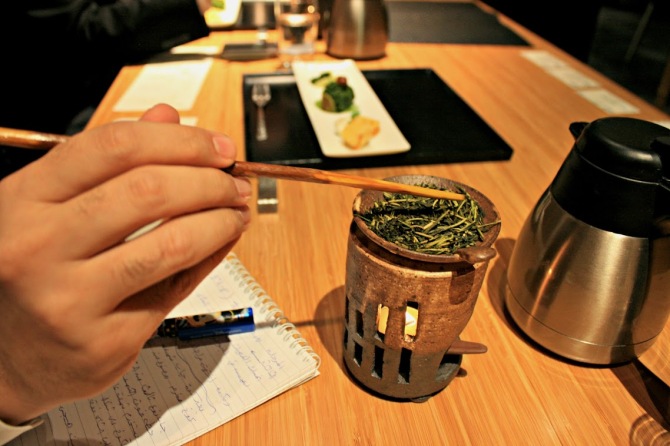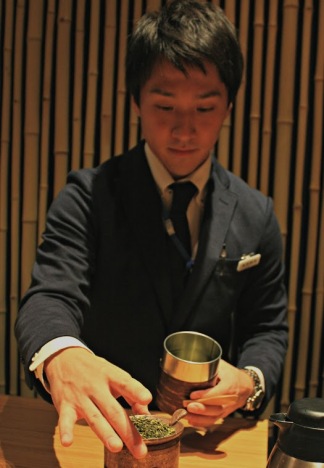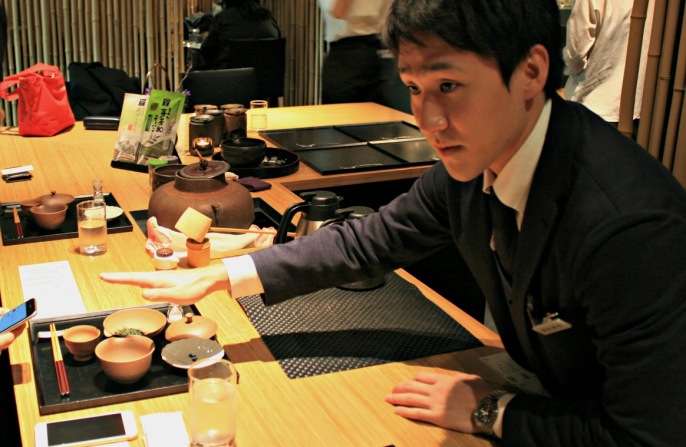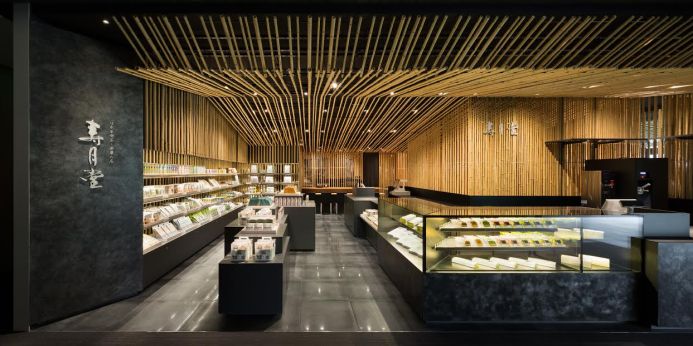Tokyo, Japan Feb. 23 Sun 1:19AM
The Ritual of Tea
In Japanese, tea ceremony is called sadou 茶道 (the way of tea). Before Myon Eisai, the founder of Zen Buddhism, brought the concept of growing tea for religious purpose from China in the 12th century, Japanese considered tea as valuable medicine which only noble people could have access to. He taught how should tea be prepared, served, and consumed, which then became the origin of the tea ceremony we know today. As time went by, more and more people from different classes, such as the samurai, shogunate, the royal family and so on, were interested in tea drinking culture. Thanks to this, tea ceremony was introduced throughout Japan. However, not everyone was happy with the ceremony itself, so with some adjustments, they created their own version of tea ceremony. In general, however, serving someone tea means you cherish your guest and the relationship with them. Traditionally, tea ceremony took place in a narrow room where the host and guests sit fairly slow to each other. This emphasizes your intention to narrow the gap between you and your guests.
Originally, green tea was cultivated only in Uji (Kyoto), but nowadays, Shizuoka, Fukuoka, and Saitama are also famous for tea cultivation.
The Japanese ritual of drinking Green tea has four steps:
1 – Harmony (Wa)
2 – Respect (Kei)
3 – Purity (Sei)
4 – Serenity (Gaku)
The first ritual:
Cold green tea from Shizuoka prefecture with a light small Japanese sweets has been offered.
The simple Japanese cake is also made from the green tea.
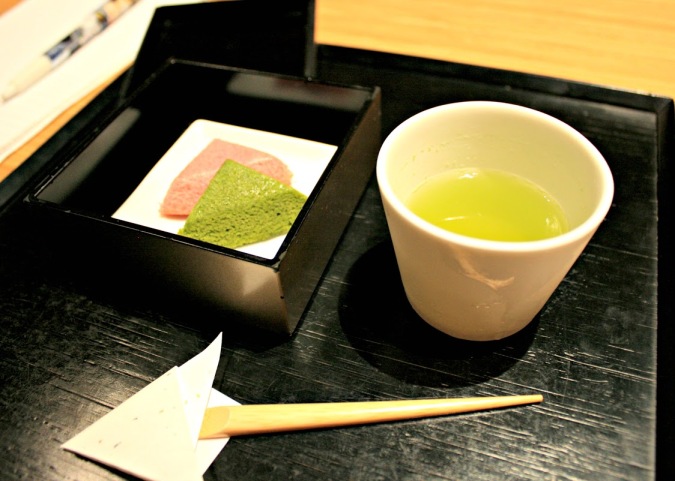
Hojicha(roasted brown tea)from Kyoto
The second ritual:
Hot green tea from Kyoto.
This time we had green tea cultivated in Kyoto.
To brew the tea, we poured hot water into the tea cup and waited for three minutes. Then, we poured the hot water over the tea leaves and left them covered for two minutes.
We made a second cup of tea but steeped it for less time, creating a lighter-tasting tea.
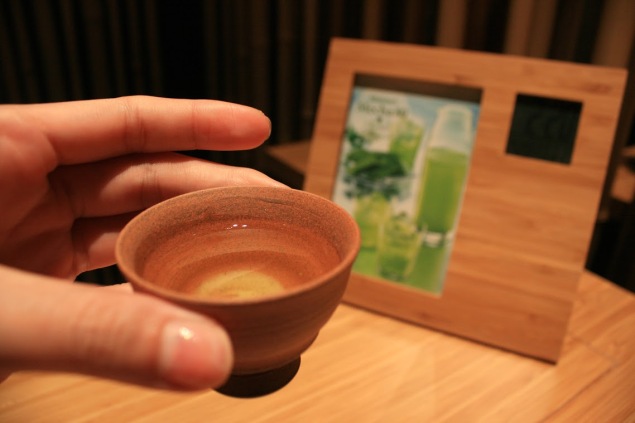
After drinking the tea for twice, we ate the the remaining tea leaves, dipping them into a special soy sauce with vinegar.

The third ritual-the Japanese tea ceremony:
Hot green tea cultivated in Kyoto, West of Japan.
This appeared to be fairly simple for us (the audience), mixing hot water and tea powder together with a bamboo whisk. However, tea ceremony is an art and a spiritual discipline. In order to serve one cup of tea, there are certain steps you have to follow, and each has its own meaning.
Sweets made from green tea were offered again.
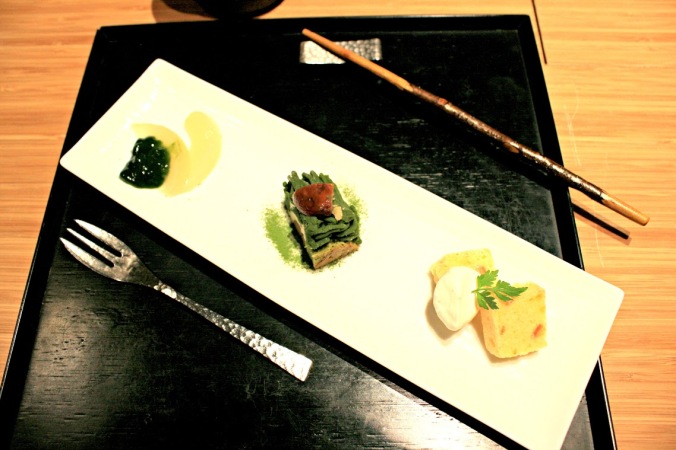
The fourth ritual:
Green tea leaves cultivated in Hida, near Nagoya. We toasted the tea leaves above the candle for 10 minutes, then mixed them with hot water.
This green tea ceremony experience takes about one hour. Beside the great tea offered in-store, there are all sort of products made from green tea such as cakes, candies or chocolates, and matcha powder cultivated in different regions across Japan available for purchase.
Nowadays, each guest is served one cup of tea. However, back in the old time, one cup of tea was shared among the guests as they were mostly samurai, who shared a close bond with each other.
The combination of the beautiful scenery, and the harmonious match between the green color in your cup and the vibrant color of the wagashi (Japanese sweets) create a living picture of Japanese traditional culture.




